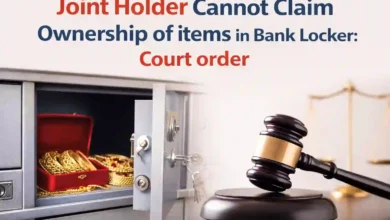Supreme Court: Public Servants can’t be prosecuted in Money Laundering Cases without Government Approval

In a significant decision, the Supreme Court ruled that government employees require prior government approval before they can be prosecuted in money-laundering cases under the Prevention of Money Laundering Act (PMLA). This ruling clarifies that Section 197 of the Criminal Procedure Code (CrPC), which requires prior sanction for prosecuting public servants, applies to PMLA cases as well.
This decision, made by a bench of Justices Abhay S Oka and Augustine George Masih, emphasized that protecting honest public servants is crucial. The justices stated that the purpose of requiring prior sanction is to safeguard public servants from legal actions related to duties performed in good faith while carrying out their official responsibilities. However, this protection isn’t unlimited; it only applies when the government gives prior approval.
Background of the Ruling
The Enforcement Directorate (ED), the agency responsible for enforcing PMLA, argued that the PMLA’s provisions should take precedence over other laws like the CrPC. They referred to Section 71 of the PMLA, which states that PMLA provisions override conflicting provisions in other laws. The ED argued that money laundering is not a duty-related activity of public servants and therefore shouldn’t require any special protection under CrPC’s Section 197. They wanted the freedom to prosecute government employees for money laundering without needing government approval.
However, the Supreme Court disagreed, pointing out that Section 65 of the PMLA explicitly allows CrPC provisions to apply to PMLA cases as long as there is no direct conflict. The court found that there’s nothing in the PMLA that contradicts the requirement of prior sanction in Section 197 of the CrPC.
Key Provisions Explained
- Section 197 of the CrPC: This section states that a government employee cannot be prosecuted for acts done as part of their official duties without prior government sanction. This aims to protect public servants who may be performing sensitive tasks that could otherwise expose them to frequent and unwarranted litigation.
- Section 65 of the PMLA: It allows relevant provisions of the CrPC to apply to PMLA cases unless they contradict specific PMLA provisions.
- Section 71 of the PMLA: This section is designed to give the PMLA an overriding effect over conflicting laws, but only when there is a direct conflict.
Court’s Analysis and Decision
The Supreme Court noted that Section 65 of the PMLA incorporates CrPC provisions unless they directly conflict with the PMLA. After reviewing the laws, the court didn’t find any section in the PMLA that directly contradicts CrPC’s Section 197. Therefore, Section 197’s requirement for prior sanction remains applicable. The court held that Section 71 does not override Section 65 in this case, as there was no inconsistency between the two acts on this issue.
As a result of this interpretation, the court dismissed the prosecution of a senior bureaucrat by the ED, citing the lack of required government sanction.
Implications of the Ruling
- Protection for Government Employees: Public servants now have protection from immediate prosecution under the PMLA for actions taken in their official capacity. Any case filed against them will require prior approval from the government, protecting them from potentially frivolous charges.
- Clarity on Legal Hierarchy: The court’s ruling provides clarity on the application of CrPC provisions in PMLA cases, establishing that only in cases of direct conflict will PMLA provisions override CrPC.
- Precedent for Similar Cases: This decision may serve as a precedent in cases where government employees are accused of misconduct related to their duties, as it reaffirms the need for government approval to prosecute under certain laws.
